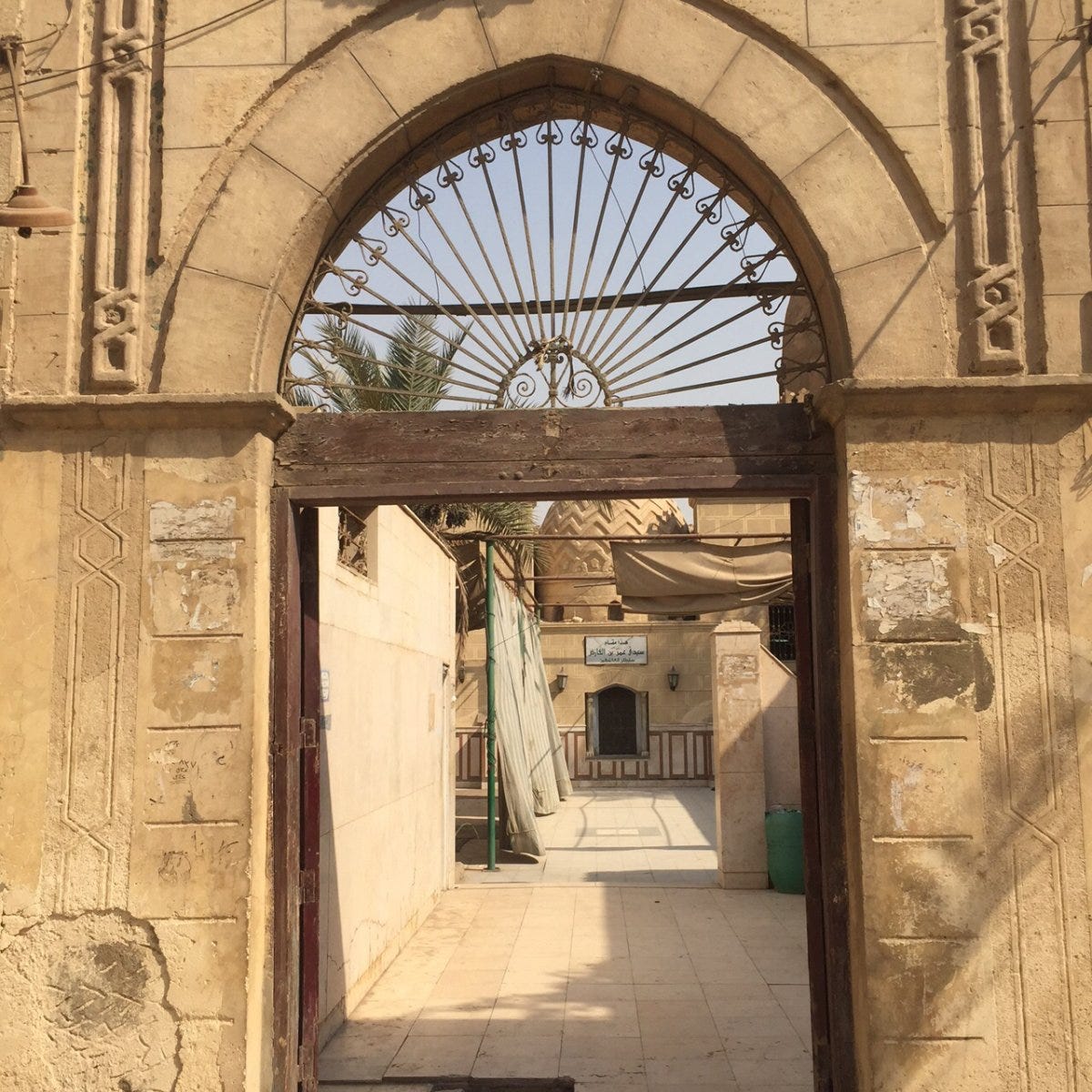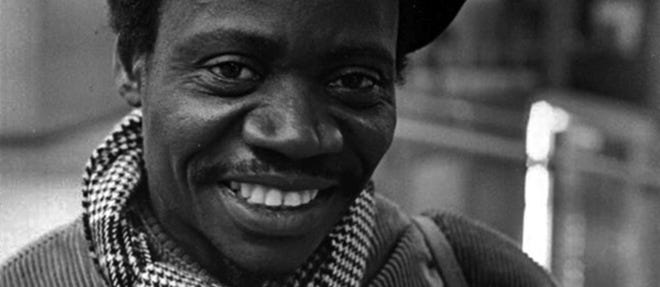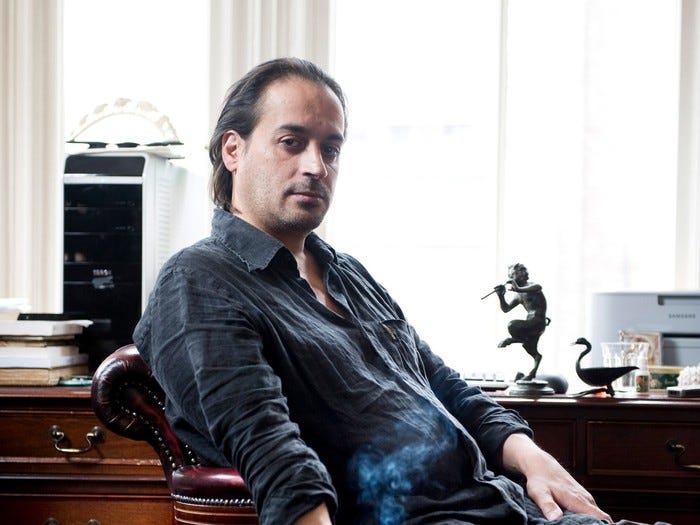In a recent post celebrating the delightful provocations of Senegalese novelist Mariama Bâ, I found myself bemoaning how little of the work of Bâ’s later compatriot Ken Bugul has been made available to non-francophone readers.1 In an older article of mine that has just been republished by the Mĩcere Gĩthae Mũgo Foundation, I likewise got all wistful over the lack of availability to anglophone audiences of much of the work of Fatou Diome, Leonora Miano, and Sony Labou Tansi.2
Tansi’s way of seeing the world was a major influence on the political philosopher Achille Mbembe as Mbembe crafted De la postcolonie, the book that very rightly first made his reputation. Recently, when revising a forthcoming article about Suriname, I found myself reaching for a lengthy citation from Postcolonie. Not knowing whether my editor spoke French, I cracked open the English-language edition, which made a bigger splash upon its publication than had the French first edition. I was fascinated to be confronted immediately with the extent to which On the Postcolony is simultaneously very much the same and very much a different book than De la postcolonie.3
The Mbembe experience gave me a happy turn of mind, as too much thought about things that have not been translated can let onto your shoulder an obnoxious spirit, twirling a pair of opera glasses as it whispers into your ear, “oh, but you must read it in the original Glubbdubdribbian.” Thinking about Mbembe being the same and different in two languages prompted me to pull down from the shelf my favorite translation of all time, Hafid Bouazza’s Schoon in elk oog is wat het bemint.4
Translation during wartime.
Let us start with context. In the first decade of this century, as the United States and some of its allies went to war first in Afghanistan and later in Iraq, the market for new translations from Arabic into European languages grew rapidly. Poetry, especially Sufi and other mystical poetry, came in for special attention. Some books contained new translations; others gathered old ones.

The results were rarely congenial. Arabic and other Islamic mystical poetry, especially from the classical period, has a fantastic reputation, but Arabic is a language that achieves its aesthetic and rhetorical ends often in very different ways than do Western European languages.5 Ghazals and other Arabic verse forms are structurally dense, and a translator is immediately faced with a decision: do they try to match the structure in the target language? Do they perhaps look for forms from the literature of the target language that are of a similar age, are put to a similar purpose, or are similarly complex, and translate into those? Do they just translate into free verse, since that is the dominant prosodic form of the present age in Western Europe and its diaspora? These are tough questions, and while there is no right answer, there can well be wrong ones.
What makes poetry translations yet more challenging is another problem, one that must almost be whispered: not all poets are created equal. Will the poetry in the target language achieve commensurable effects to those it attained in its original language? Every writer, like every singer, has a register they just can’t reach. This does not make them necessarily a bad writer, but if they insist on trying to reach it, there is a good chance that the product of their effort will turn out badly. A poet needs both to know how and to be able to make the repulsive unpleasant and the exquisite exquisitely so.6
A stranger in a strange land.
Hafid Bouazza was born in Morocco in 1970, moving to the Netherlands before he was ten. He made his literary debut in Dutch when he was twenty-five, initially publishing in prose.7 He seems to have lived a hard, dissolute, and deeply intellectual life. Bouazza died in 2021, and obituaries noted that he had struggled with drug use and illness in his later years. He appends to his translations from Arabic into Dutch delightfully idiosyncratic and argumentative endnotes in which he sets himself off against editors, scholars, and previous translators.8 He gleefully flags linguistic interpretations which leave him all alone against a body of consensus. Bouazza plays queerly with language as though he has found within it the unexpected fount of all joy.
He delights nearly as much in bringing forth Arabic doggerel and the clear interest it had for centuries of readers, as he does in making what is sublime in Arabic come forth equally sublime in Dutch. Well, ok, he enjoys the sublime more, as illustrated by the phrase that gives his series of translations its title: “Schoon in elk oog is wat het bemint.” The most facile rendering of the line into English might be “beauty is in the eye of the beholder,” but that only illustrates the difference between poetry, which evokes, and prose, which states. For, with a great economy of language, Bouazza lets his reader know without quite saying as much that it is what attracts the eye that the eye elects to call “beautiful,” and he plays off Dutch’s linguistic structure to place at the very end of the phrase the exact word that opens the phrase to our understanding like the sprung latch of a luscious garden. The fullest expression of the idea ends up only in the reader’s mind, while Bouazza’s lyricality is crafted in such a way as to have confidently planted it and pruned it to its mature shape in the split-second of its growth. His achievement, here and throughout his translations in the series, is all the more noteworthy because Dutch is a hideously difficult language to make engaging or sonorous.9
Schoon in elk oog is wat het bemint was originally published over a period of fifteen years, or ten if we start only from the polished second edition of its first volume, devoted to Arabic love poems. The lengthy second volume or part, De zon kussen op dit nachtuur, then presents translations of the poems Abdallah ibn al-Mu‘tazz, the Abbasid sometime scholar and eventual political reject who represents in many ways for Bouazza the ideal figure of the diverse poetic scene he loves. The slim third part, Om wat er nog komen moet, contains erotica in verse. The hefty fourth part, Niets dan zonde, sees Bouzza revelling in the heart of what has become his subject: the proximity his classical Arabic-language poets assert between transgression, perdition, and the divine. The fifth and final part, Vrede is deze nacht, sees Bouazza in epilogue mode, pivoting slightly as he offers poetry of winter and Christological topics. Even here, he is determined as ever to needle his readers as he reminds them that Arabic poetry is so much more than whatever preconceptions they may bring to it.10
An appreciation of mystical poetry.

Only a small proportion of the verse Bouazza translates is by Sufi or other mystical poets.11 Despite, or perhaps in truth because of this, Bouazza’s translations give a better understanding of how Sufi prosody works than any other attempts at translating it that I have encountered. This is because much of classical Sufi devotional poetry uses the language of romantic love, drunkenness, desire, and transgression written both large and small, as part of a metaphor expressing, often only implicitly, the relationship between the mundane and the divine.12
Bouazza, by making his home in the translation of Arabic poetry about when the human body feels outside of itself, even when the poems in question are not attempts to express religious experience, brings his readers to an idea, however traitorous, of the risks, leaps, flights, and confidences the core set of Sufi poets take in their work, of the air through which they sing.
I hope to devote a post here to Bugul’s second novel, Cendres et braises, in the coming weeks, though I may push out delivery a bit in order to also cover something from her fascinatingly different Beninese sequence of works.
Tansi’s excoriatingly haunting and beautiful debut novel, La vie et demie, much celebrated since its original publication, is now available in a translation by award-winning translator Alison Dundy, though the fact that it made few waves upon its appearance suggest that something went wrong on the way to market.
I first read De la postcolonie in its second French edition, whose prologue, by Mbembe, is in large part a meditation on some reasons that anglophone readers, as a whole, recognized its value before francophone ones did. You can expect another future post here expanding on some of the excellent points made in that prologue and what they mean for attempts to apply its lessons a quarter-century after its publication.
Bouazza and his executors used the same title for:
a book published in 2000;
a 2005 revised and expanded edition of the 2000 book;
a five-volume series, also known as De Arabische bibliotheek, of which the 2005 book was the first; and
a 2021 omnibus edition of the formerly five-volume series.
This post refers to the omnibus edition.
My own study of Arabic has only just recently begun; a point which may be kept in mind in reading this post.
A comparison with jazz might help. Ornette Coleman and his bands were both famous and infamous for the frequency with which they produced “clams,” or mistakes. These mistakes more or less “worked” for Coleman et al. insofar as they were part of a coherent and inspiring set of aesthetic and processual choices; the same mistakes would be merely unbearable in almost any other context. Charles Mingus provided the fairest appreciation of Coleman, one that provides a neat metaphor for the game in which both poets and translators are engaged, and the challenges the players of the game face.
Bouazza was part of a small set of Dutch authors whose output was collectively known as migrantenliteratuur, or immigrant literature. The only member of the scene not born in Morocco was Ugandan-born Sey Wava, who wrote as Moses Isegawa. Isegawa drafted five books in English; all five were translated into Dutch and published in the Netherlands over a period of just under ten years. As far as I know, only the first two, both novels, were subsequently published in English. Fittingly given his existential linguistic transgression, Isegawa wrote the preface to a reissue of Petals of Blood, the last novel Ngũgĩ wa Thiong'o wrote in English. I very much want to read Isegawa, as I am curious as to what relationship his writing may bear to the various assumptions I have built up consciously or otherwise about the relationship between African writers, their readers, their community, and their identity.
In one such note, Bouazza provides an alternate translation of a poem as though it were the product of a twenty-first-century rapper from a European banlieue, closing it out by noting acidly that such versifying, while a possible rendering, is foreign to his own central project. Bouazza’s open discussion of translational options, combined with his gleeful opinionated stands, pleasantly prepare the reader for the possibility that Bouazza could well be entirely wrong at any given time. It becomes possible to disagree with him without disassociating from his efforts.
It speaks to Dutch’s bland illyricality that while some readers may be familiar with the Dutch poet Marieke Lucas Rijneveld, likely few can name three Dutch poets.
Vrede is deze nacht begins with two provocative and ever-so-slightly profane translations from the Qur‘an which imagine what two suwar might mean if their characters were given different naqt, or letter-specifying dots, than is traditionally the case.
Rumi and ibn al-Farid each come and go so quickly that a reader might not even notice they’ve been by.
Alex Thurston’s most recent post, on Sufism in Africa, provides both excellent further context to the work of Bouazza as well as a clear constraint to how it can be construed. Thurston points out that Sufism and Islam in Africa are both central threads of global Islam and not lesser or alternative variants. He also rightly objects to the “distortion” of Sufism as “something you could purchase at a Barnes and Noble.” If we acknowledge that there does exist Sufi poetry, that it is poorly served by and contextualized in Barnes and Noble (and Paagman), and that it is in discourse with other Arabic poetry, significant batches of which were not respectable enough for Ahmad ibn Idriss to cite with approbation, then the quite distinct projects of Thurston’s and Bouazza’s, two philosophically divergent writers, need not conflict with one another.



